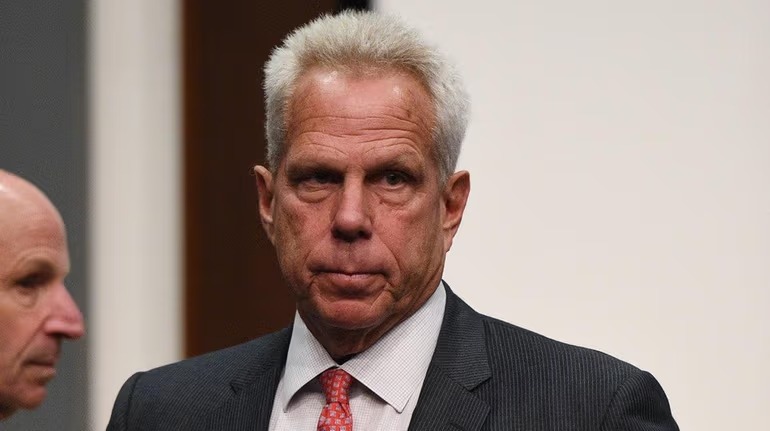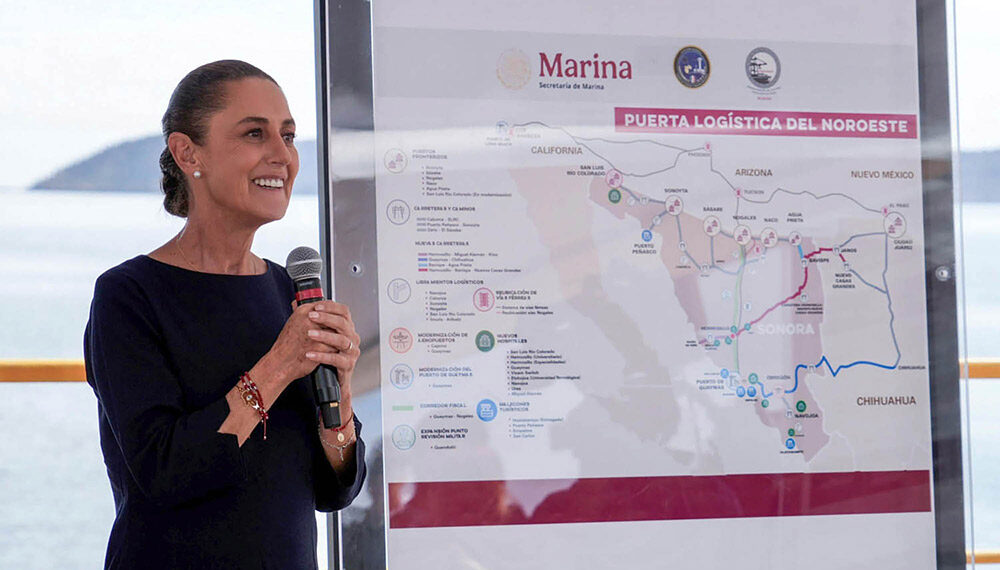International
Colombian prosecutor asks judge to shelve probe into ex-president

AFP/Editor
Colombia’s public prosecutor said today he would ask a judge to halt an investigation into former president Alvaro Uribe regarding alleged witness tampering and fraud.
Conservative Uribe, 68, is considered Colombia’s most influential politician and is the mentor of current President Ivan Duque. He served as president from 2002 to 2010 and was known for his tough stance on fighting the leftist Revolutionary Armed Forces of Colombia (FARC) guerrillas. He also strongly opposed his successor Juan Manuel Santos’s historic 2016 peace accord with FARC that ended a half century of armed conflict by the Marxist rebels.
The investigation surrounds a complaint filed by Uribe in 2012 against leftist senator Ivan Cepeda, whom he accused of hatching a plot to falsely link him to right-wing paramilitary groups.
But the Supreme Court decided against investigating Cepeda and in 2018 instead opened a witness tampering probe against Uribe. “The case prosecutor has established that some of the behaviors” Uribe is accused of “are not crimes and others that are, cannot be attributed to him as author or participant,” said the public prosecutor’s office in a statement.
Prosecutor Gabriel Jaimes has requested a hearing to present his case to drop the investigation, which a judge may either grant or deny.
Uribe was placed under house arrest by the Supreme Court in August when serving as a senator, but he resigned and two months later was released by a lower court. As a senator, Uribe’s case would have been investigated by the Supreme Court, but his resignation meant the case passed into the jurisdiction of a lower court.
He was thus investigated by public prosecutor Francisco Barbosa, a former ally of his protege Duque.
International
NFL Investigating Emails Linking Giants Executive to Jeffrey Epstein

NFL Commissioner Roger Goodell said on Monday that the league will “examine all the facts” regarding contacts between New York Giants co-owner Steve Tisch and Jeffrey Epstein, revealed in documents recently released about the late convicted sex offender.
The batch of files, made public on Friday by the U.S. Department of Justice, includes emails suggesting that Epstein introduced several women to Tisch.
Tisch, a film producer who has never been charged in connection with Epstein, issued a statement last week denying any wrongdoing.
“I had a brief relationship in which we exchanged emails about adult women, and we also discussed film, philanthropy, and investments,” Tisch said of his correspondence with Epstein, which dates back to 2013.
“I did not accept any of his invitations and never went to his island. As we all now know, he was a terrible person and someone I deeply regret having associated with,” he added.
Speaking at a press conference in San Jose, California, on Monday, Goodell said the NFL would carefully review the details of the ties between Tisch and Epstein.
“We’re going to examine all the facts,” the commissioner said. “We’re going to look at the context of those exchanges, try to understand them, and see how that fits within the league’s policies.”
Tisch, 76, could face disciplinary action under the NFL’s strict personal conduct policy, even if he is not found guilty of a crime.
“We’re going to take this step by step. First, let’s gather all the facts,” Goodell said at the press conference, which was part of the events leading up to Sunday’s Super Bowl between the Seattle Seahawks and the New England Patriots.
International
Spain Seeks to Ban Social Media Access for Children Under 16

The Spanish government wants to ban access to social media for children under the age of 16 to shield them from a world of “pornography” and “violence,” Prime Minister Pedro Sánchez announced on Tuesday in Dubai.
“Spain will ban access to social media for minors under 16,” Sánchez said during a speech at the World Governments Summit, being held in the United Arab Emirates city.
The Spanish leader said social media platforms will be required to implement effective age-verification systems, going beyond simple checkboxes to establish “real barriers that actually work.”
“Today, our children are exposed to a space they were never meant to navigate alone,” Sánchez said, describing an environment of “addiction, abuse, pornography, manipulation and violence.”
“We will no longer accept this,” he added.
The left-wing prime minister also announced plans to change the law so that “platform executives are legally responsible for many of the violations that occur on their websites.”
“This means that the CEOs of these technology platforms will face criminal liability for failing to remove illegal content or material that incites hatred,” Sánchez said.
International
Mexico to Send Humanitarian Aid to Cuba Amid U.S. Threats Over Oil Shipments

Mexico will send “humanitarian aid” to Cuba this week, including food and “essential supplies,” President Claudia Sheinbaum announced on Sunday, after the United States threatened to impose tariffs on countries that supply oil to the island.
“We are planning humanitarian aid for Cuba (…) including food and other products, while we resolve diplomatically everything related to the shipment of oil for humanitarian reasons,” Sheinbaum said during a public event.
Mexico has become a key oil supplier to Cuba, which is facing a deep energy crisis worsened by the suspension of crude oil shipments from Venezuela following U.S. military intervention in that country and the capture of Nicolás Maduro.
Sheinbaum has previously warned that Mexico would continue to act in “solidarity” with Cuba, although she instructed her foreign minister to establish contact with Washington to “clearly understand the scope” of President Donald Trump’s decree sanctioning hydrocarbon shipments to the island.
While her government seeks a diplomatic solution with the U.S. administration, the leftist president decided to proceed with the delivery of other humanitarian goods.
-

 International5 days ago
International5 days agoU.S. Senate Rejects Budget, Bringing Government Closer to Shutdown Amid DHS Dispute
-

 Central America4 days ago
Central America4 days agoPanama Supreme Court Strikes Down Panama Ports Concession as Unconstitutional
-

 Central America4 days ago
Central America4 days agoU.S. and Guatemala Sign Trade Deal Granting Zero Tariffs to Most Exports
-

 International5 days ago
International5 days agoStorm Kristin Kills Five in Portugal, Leaves Nearly 500,000 Without Power
-

 International5 days ago
International5 days agoMan Arrested After Vehicle Crashes Into Jewish Institution in Brooklyn
-

 International5 days ago
International5 days agoTrump Says Putin Agreed to One-Week Halt in Attacks on Ukraine Amid Extreme Cold
-

 Central America2 days ago
Central America2 days agoCosta Rica Goes to the Polls as Voters Choose Continuity or Change
-

 International16 minutes ago
International16 minutes agoSpain Seeks to Ban Social Media Access for Children Under 16
-

 International24 minutes ago
International24 minutes agoPetro Resumes Extraditions, Sends Top Criminal to U.S. Before White House Talks
-

 International26 minutes ago
International26 minutes agoMexico Arrests Suspect in Shooting of Sinaloa Lawmakers
-

 International20 minutes ago
International20 minutes agoMexico to Send Humanitarian Aid to Cuba Amid U.S. Threats Over Oil Shipments
-

 Central America21 minutes ago
Central America21 minutes agoLaura Fernández Says She Will ‘Never’ Allow Authoritarianism in Costa Rica
-

 International12 minutes ago
International12 minutes agoNFL Investigating Emails Linking Giants Executive to Jeffrey Epstein


























